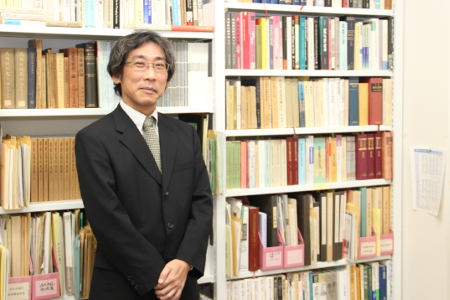
Full Text
簡体字 / 正體字 / English摘要:
本文探讨日本战后的靖国神社,聚焦在日本政府高层参拜靖国神社这一问题,探究首相、内阁阁员参拜靖国神社在国内外政治化原因。本文从三方面进行分析梳理。第一,探究日本战后首相参拜靖国神社的政治化问题的原因。第二,分析内阁阁员参拜靖国神社对于日中外交关系的影响。特别是针对1980年后在中国逐渐形成的靖国神社热议,1985年以中曾根首相正式参拜靖国神社为契机,再次成为两国之间争论的焦点。第三,探讨小泉纯一郎内阁时期的首相参拜靖国神社问题再度成为国际问题,成为日中两国对立的重要原因。
战后的靖国神社问题由于是涉及国家与特定宗教之间的关系,原本在日本这种政教分离的国家是属于国内问题,可是因为以中国为首的亚洲各国从1980年代起将日本内阁阁员参拜靖国神社视为问题,使得靖国神社问题成为了中国质疑日本如何面对历史问题的国际问题。在日本和中国,合祭A级战犯是这个问题上最大的争议,从结果论来看,可以说中国在1985年9月19日的批判以及1986年8月的后藤田谈话,促成了建立首相不参拜靖国神社的政治惯例。
不过,小泉内阁时期首相参拜靖国神社再次成为国际问题,并成为日中关系对立的主要原因。支持小泉首相每年参拜靖国神社的民意,主要是对首相个人的参拜目的有所同感,以及显示出抗拒外国抗议的情绪。有这样的民意支持为背景,让小泉首相在对应“参拜靖国神社问题”时,才得以运用他擅长的不向对手让步的政治手段。不过“参拜靖国神社问题”在日中政府之间出现纷争时,外交问题就容易反映在民意上。另一方面,可以说因为中国反日情绪高涨,使得日中双方都出现了不愿意宽容对方的国民情感,反而加深了政府之间的对立。
追根究柢来说,小泉内阁时期,日中两国政府在“参拜靖国神社问题”互不让步的原因,就是两国社会对靖国神社的特定感觉印象支撑着彼此的政府。而且日中双方对靖国神社的不同感觉印象,也显示出两国之间对过去的战争存在着明显的认知操作上的差异。
摘要:
本文探討日本戰後的靖國神社,聚焦在日本政府高層參拜靖國神社這一問題,探究首相、內閣閣員參拜靖國神社在國内外政治化原因。本文從三方面進行分析梳理。第一,探究日本戰後首相參拜靖國神社的政治化問題的原因。第二,分析內閣閣員參拜靖國神社對於日中外交關係的影響。特別是針對1980年後在中國逐漸形成的靖國神社熱議,1985年以中曾根首相正式參拜靖國神社為契機,再次成為兩國之間爭論的焦點。第三,探討小泉純一郎内閣時期的首相參拜靖國神社問題再度成為國際問題,成爲日中兩國對立的重要原因。
戰後的靖國神社問題由於是涉及國家與特定宗教之間的關係,原本在日本這種政教分離的國家是屬於國內問題,可是因為以中國為首的亞洲各國從1980年代起將日本內閣閣員參拜靖國神社視為問題,使得靖國神社問題成為了中國質疑日本如何面對歷史問題的國際問題。在日本和中國,合祭A級戰犯是這個問題上最大的爭議,從結果論來看,可以説中國在1985年9月19日的批判以及1986年8月的後藤田談話,促成了建立首相不參拜靖國神社的政治慣例。
不過,小泉內閣時期首相參拜靖國神社再次成為國際問題,並成為日中關係對立的主要原因。支持小泉首相每年參拜靖國神社的民意,主要是對首相個人的參拜目的有所同感,以及顯示出抗拒外國抗議的情緒。有這樣的民意支持為背景,讓小泉首相在對應「參拜靖國神社問題」時,才得以運用他擅長的不向對手讓步的政治手段。不過「參拜靖國神社問題」在日中政府之間出現紛爭時,外交問題就容易反映在民意上。另一方面,可以說因為中國反日情緒高漲,使得日中雙方都出現了不願意寬容對方的國民情感,反而加深了政府之間的對立。
追根究柢來說,小泉内閣時期,日中兩國政府在「參拜靖國神社問題」互不讓步的原因,就是兩國社會對靖國神社的特定感覺印象支撐著彼此的政府。而且日中雙方對靖國神社的不同感覺印象,也顯示出兩國之間對過去的戰爭存在著明顯的認知操作上的差異。
Abstract:
This study explores the background and factors behind the “politicization” of the visit to Yasukuni Shrine by the leaders of the Japanese government at home and abroad. We intend to view and examine this incident from three angles. The first view traces how the prime ministers’ visit to Yasukuni Shrine became a political issue in Japan after the Second World War. The second view analyzes the process by which the prime ministers’ visits to Yasukuni Shrine were conducive to the development of diplomatic issues between Japan and China. In particular, we intend to point out the issues of the “problems related to visiting Yasukuni Shrine” formed in China during the 1980s and the issues confirmed between Japan and China during the official visit by Prime Minister Yasuhiro Nakasone in 1985. Third, we consider that the Prime Minister’s visit to Yasukuni Shrine became a problem again during the Junichiro Koizumi administration.
Problems related to Yasukuni Shrine originally existed as a domestic issue, centered on the separation between the church and state in post-war Japan. However, in the 1980s, when Asian countries such as China questioned the Yasukuni shrine visits, it became an international issue that further raised questions about Japan’s handling of historical issues. Furthermore, in Japan and China, the enshrinement of Class-A war criminals at Yasukuni Shrine was highlighted, and as a result, a protocol was put in place which entailed that the prime minister not visit and worship at Yasukuni Shrine after that visit.
However, during the Koizumi administration in the early twenty-first century, the prime minister’s visit to Yasukuni Shrine was politicized again, and the relation between Japan and China deteriorated. Prime Minister Koizumi’s visit to Yasukuni was supported by public sentiment rejecting foreign protests. Public opinion euphemistically supported the prime minister’s visit to Yasukuni. However, anti-Japanese sentiment had risen in China, and thus the intolerant national sentiment in each country toward the other exacerbated the conflict between the governments.
The fundamental reason why the Japanese and Chinese governments did not give in on the issue of the visit to Yasukuni Shrine was the differing emotional understanding of Yasukuni Shrine in the two countries. These understanding differ in both countries and show that there are differences in the cognitive manipulation of past wars between them.